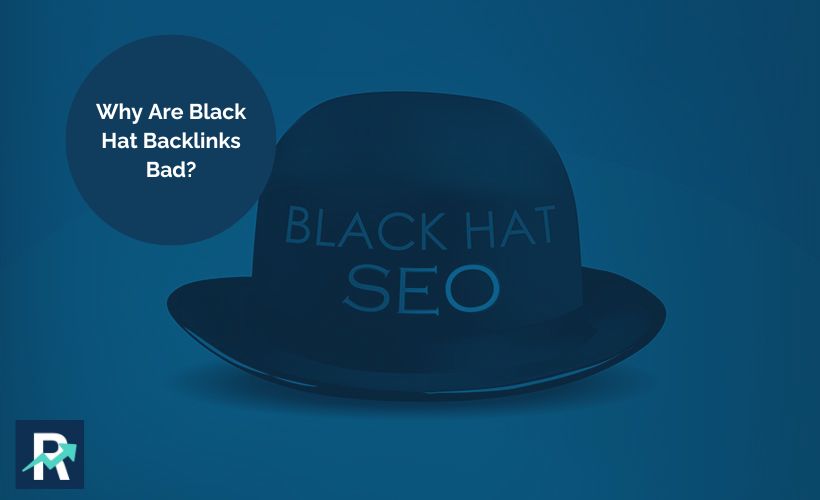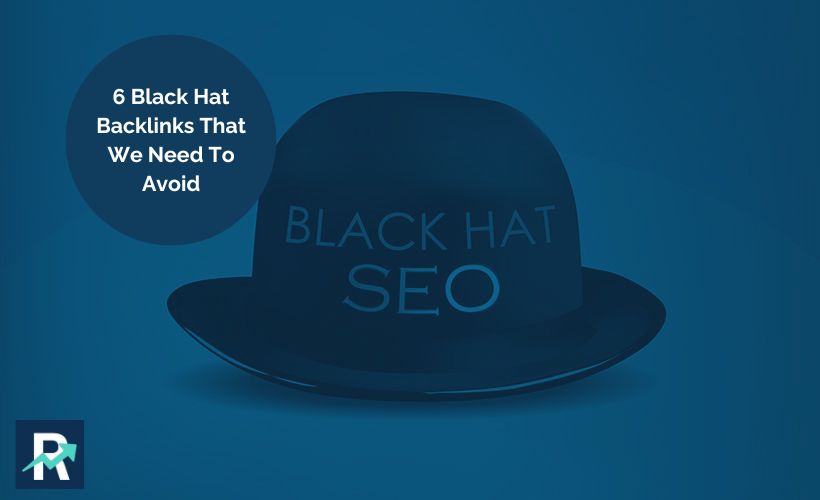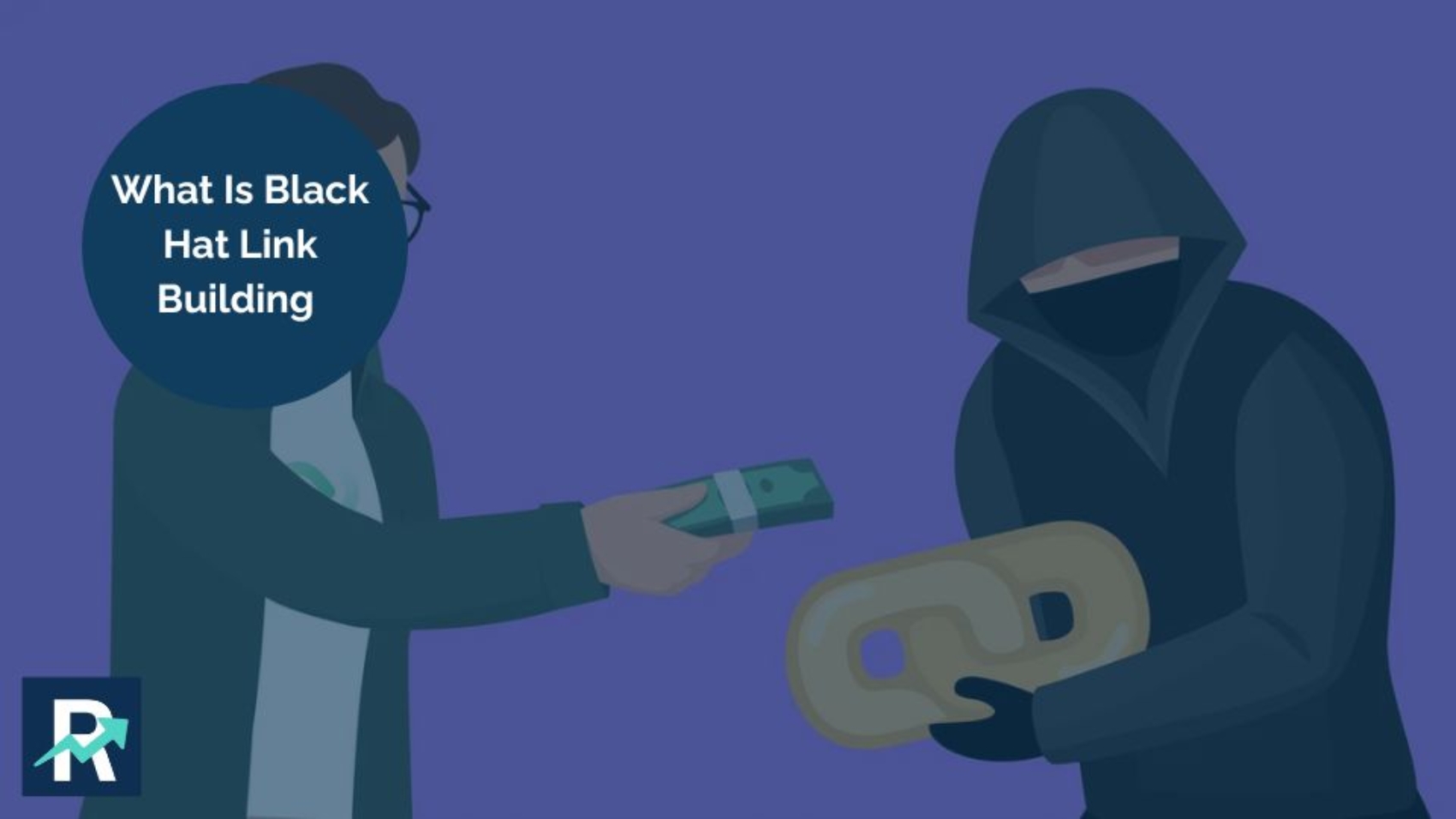Welcome to the not-so-cool side of the internet called Black Hat Link Building. Imagine this as the not-so-honest way of making websites more popular. Regular link-building is like playing fair, but black hat methods are like trying to cheat the system. It’s like using secret tricks that Google doesn’t like.
What Is Black Hat Link Building? Black Hat Link Building is like taking a shortcut in the online world to boost website rankings, but it’s the shady side of the game. It involves using tricks that Google doesn’t like. While it may bring a quick win, the consequences can hit hard, as search engines can penalise your site for breaking the rules.
Think of it as trying to win a race by taking a sneaky shortcut, but Google catches you. Black Hat Link Building might give a quick boost, but it’s like breaking the rules, and Google can give your website a time-out. So, if you’re considering going into the tricky world of link building, be careful – it’s like a digital Wild West with consequences.
What is Black Hat SEO?
Picture the internet as a big party where websites try to stand out. Now, some use sneaky tricks to get noticed, and that’s what we call Black Hat SEO – the not-so-nice side of making websites more popular.
One trick is called keyword stuffing. It’s like saying the same thing over and over to get attention. In the online world, it means filling a webpage with lots of keywords, even if it needs to make more sense. The goal? To fool search engines into thinking the page is super important.
Then there’s cloaking, another sly move. It’s like wearing a disguise to trick search engines. With cloaking, a website shows one thing to search engines and something different to people. What looks good to a search engine might turn into something else when you click on the link.
Finally, there’s the link farm strategy. Imagine friends saying you’re super cool at a party, even if they barely know you. Online link farms are like groups of websites that link to each other, trying to make a site seem more important than it really is.
But here’s the catch – search engines are onto these tricks. They’re like bouncers at the party who catch people trying to cheat their way in. If a website gets caught doing Black Hat SEO, it can be pushed down in search results or even kicked out.
What Are Black Hat Links?

Websites strive to improve their visibility through various means, and one such approach involves the use of links. However, not all links are created equal, and the term “Black Hat Links” refers to a particular type that warrants attention.
1. Defining Black Hat Links
Black Hat Links are essentially links that are acquired through manipulative and unethical methods. Instead of relying on organic and genuine strategies to gain visibility, some individuals or entities resort to shortcuts that violate search engine guidelines. These shortcuts can lead to severe consequences for the website involved.
2. Unethical Practices Behind Black Hat Links
These links often result from practices such as link farming, where a network of websites is created solely for the purpose of linking to each other. Additionally, some individuals might engage in link spamming, flooding forums, comments, or other online spaces with irrelevant links to boost their website’s ranking.
3. The Impact on Search Engine Rankings
One of the primary concerns with Black Hat Links is their negative impact on search engine rankings. Search engines, like Google, use complex algorithms to determine the relevance and credibility of a website. Black Hat Links can deceive these algorithms, leading to a temporary boost in rankings. However, search engines are becoming increasingly sophisticated in detecting such manipulative tactics.
4. Penalties and Consequences
Engaging in Black Hat SEO practices, including the use of Black Hat Links, can result in severe penalties from search engines. These penalties may range from a drop in rankings to complete removal from search engine results. Rebuilding a website’s reputation and visibility after such penalties can be a challenging and time-consuming process.
5. Differentiating Black Hat from White Hat SEO
It’s crucial to distinguish between Black Hat and White Hat SEO practices. While Black Hat relies on deceitful tactics, White Hat SEO focuses on ethical and transparent strategies to improve a website’s visibility. Building quality content, earning genuine backlinks, and ensuring a positive user experience are hallmarks of White Hat SEO.
6. Staying on the Right Side
In the ever-evolving online landscape, website owners and marketers need to stay informed about search engine guidelines. By adopting ethical SEO practices, steering clear of Black Hat Links, and focusing on providing value to users, websites can establish a sustainable online presence that stands the test of time.
Why Are Black Hat Backlinks Bad?

Black hat backlinks are like sneaky shortcuts on the internet, but they’re not the good kind of shortcuts. Imagine you’re in a race, and instead of running the whole track, you try to take a secret path to reach the finish line faster. Black hat backlinks are a bit like that secret path in the online world.
Now, why are they bad? Well, when websites use black hat backlinks, they’re basically trying to trick search engines, like Google, into thinking their site is more popular and important than it really is. It’s like pretending to be the coolest kid in class when you’re not. Search engines use links to decide how trustworthy a website is. If a site has lots of good, honest links, it’s seen as reliable. But if it has sneaky, black-hat links, it’s like trying to cheat the system.
The problem is search engines prefer to avoid being tricked. When they catch a website using black hat backlinks, they can lower its rank or even kick it out of the search results. It’s like giving a time-out to the kid who tried to cut in line. So, if you’re a website owner, it’s best to stick to the honest, white methods.
6 Black Hat Backlinks That We Need To Avoid

Here, we’ll explore six types of black hat backlinks that should be avoided to maintain a healthy online presence.
1. Link Farms: A Web of Deception
Link farms are networks of websites created solely for the purpose of exchanging backlinks. These artificial link-building tactics may seem enticing, but search engines frown upon them. Engaging with link farms can result in penalties, causing your website to plummet in search rankings.
2. Paid Links: A Shortcut with Consequences
While it might be tempting to purchase links to boost your website’s authority quickly, this black hat tactic can have severe repercussions. Search engines, like Google, are adept at detecting paid links and may penalize your site for attempting to manipulate the system.
3. Hidden Text and Links: Playing Hide and Seek with Search Engines
Some unethical practices involve hiding text or links within a page’s code, making them invisible to users but detectable by search engines. This deceitful technique can lead to penalties and a damaged online reputation.
4. Irrelevant Anchor Text: The Misleading Trail
Using misleading anchor text is another black hat strategy that can harm your website’s SEO. When the anchor text doesn’t accurately represent the content it links to, search engines may perceive it as an attempt to deceive users, resulting in penalties.
5. Article Spinning and Duplicate Content: The Copycat Conundrum
Creating multiple versions of the same content or “spinning” articles to generate backlinks is a black hat practice that undermines the quality of your site. Search engines prioritize original and valuable content, and duplicating material can lead to a decrease in rankings.
6. Comment Spam: An Unwelcome Intruder
Comment sections can be breeding grounds for black hat backlinks through comment spam. Posting irrelevant or promotional links in large volumes across various sites not only annoys users but can also lead to penalties from search engines.
Conclusion
Black hat link-building is like taking a shortcut in a race; it might seem tempting, but it’s against the rules. It’s the shady side of the web where links are built unnaturally, risking penalties from search engines.
Just like in real life, the quick path is only sometimes the right one. Instead, focusing on white hat strategies ensures a more sustainable and trustworthy online presence. Remember, in the vast online landscape, building links the right way isn’t just about playing fair – it’s about building a solid foundation for your digital journey.
Frequently Asked Questions (FAQs)
What is a black hat link?
A black hat link refers to a hyperlink that has been obtained through unethical or manipulative means to improve a website’s search engine ranking. These links often violate search engine guidelines and can lead to penalties or bans.
What is the difference between white hat and black hat link building?
The main difference lies in the methods used to acquire links. White hat link building involves ethical and legitimate strategies to gain links, such as creating high-quality content, guest posting, and building relationships. Black hat link building, on the other hand, relies on manipulative and often deceptive techniques, such as buying links, link farms, and other tactics that violate search engine guidelines.
What are black hat SEO paid links?
Black hat SEO paid links involve purchasing links from websites with the intention of manipulating search engine rankings. This violates search engine guidelines because it artificially inflates a website’s link profile without considering the relevance or quality of the links. Search engines, such as Google, frown upon paid links as they undermine the natural and organic nature of link building.
What is the white hat link-building strategy?
White hat link building focuses on using ethical methods to acquire high-quality and relevant backlinks. Some strategies include creating valuable and shareable content, guest posting on reputable websites, participating in industry forums, building relationships with influencers, and earning links naturally through the merit of the content.
What is the black hat technique?
A black hat technique refers to any unethical or deceptive method used to manipulate search engine rankings or exploit vulnerabilities for personal gain. Black hat techniques can include keyword stuffing, cloaking, hidden text, and other strategies that violate search engine guidelines. These practices can lead to severe penalties, including removal from search engine indexes.


